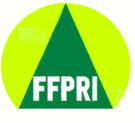Background and Objectives
Multiple funds and finance mechanisms have contributed in promoting forest-related activities in developing countries. Designing an effective finance scheme is one of the key elements to enhance effective and efficient forest conservation and sustainable forest management in developing countries.
Reducing emissions from deforestation and forest degradation etc, in developing countries (REDD+), which is still under discussion by the UN Framework Convention on Climate Change (UNFCCC), has a large potential to provide financial incentives to promote forest conservation and sustainable forest management as well as to enhance greenhouse gas emissions reductions in developing countries, if the REDD+ scheme is well-designed.
This international seminar aims to explore effective REDD+ finance mechanisms and its optimum use, based on the experience and outcomes of existing finance for REDD+ and other forest-related activities. Key questions of this seminar are as follows.
1. How can we mobilize wide range of finance sources for REDD+?
2. How can we enhance the effective use of wide range of finance for REDD+? Further, how can we effectively use these funds to address drivers of deforestation and forest degradation in developing countries?
3. How can we draw lessons from existing finance for REDD+ and other forest-related activities? What are the challenges of funders and recipients in enhancing forest conservation and sustainable forest management?
4. What kind of international and national governances are necessary to build more effective finance for REDD+?
In order to explore above questions, we invite distinguished speakers from different stakeholders, funding agencies, recipient countries, and academic institutions.
UNFCCC COP19, held in November 2013 in Warsaw adopted the Warsaw Framework for REDD+ (a package of seven decisions on REDD+). One of the important pillars of this Warsaw Framework for REDD+ is financial mechanisms for REDD+. The COP reaffirmed that the finance for REDD+ may come from a wide variety of sources, encouraged entities financing the REDD+ activities to collectively channel adequate and predictable results-based finance in a fair and balanced manner, and decided to establish an information hub on the web platform on the UNFCCC website which can contribute to increase transparency of information on actions. Further the COP encouraged the national entities or focal points, Parties and relevant entities to hold annual voluntary meetings in order to sharing information and experiences and discuss needs and functions related to coordination of support for REDD+ implementation, and called for making recommendations on governance for REDD+ at the end of 2017 to Subsidiary Body for Implementation.
Wide variety of sources includes, multilateral, bilateral, public, private, market, no-market finance. However, under the UNFCCC, it lacks concrete discussion to explore effective way to mobilize funds for REDD+ and the effective use of these funds to enhance forest conservation and sustainable forest management in developing countries.
Currently, multiple funds and finance mechanisms have already supported REDD+ and other forest-related activities in many developing countries, e.g, multilateral finance and programs for REDD+ include Forest Carbon Partnership and UN-REDD+, and bilateral finance and programs include Indonesia-Norway REDD+ Partnership Amazon Fund in Brazil. Further, wide range of stakeholders i.e. funders, recipients, governments, NGOs, private sectors participate in financing and implementing REDD+.
This international seminar provides a great opportunity to establish a platform to discuss finance for REDD+ and its optimal use by drawing lessons from existing finance and activities for REDD+ and other forest-related activities.

